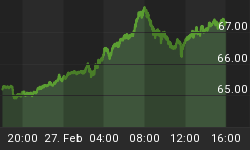The global securities market got a surprise recently when U.S. core consumer price inflation crept up to 2.3% year over year in the month of August. This closely followed core measure, which strips out the more volatile food and energy costs, increased 0.3%; this was the biggest rise in core CPI since February.
According to the government, while the costs associated with food and energy decreased, price increases came primarily from medical care commodities and medical care services. According to the Bureau of Labor Statistics (BLS), the prices for medicine, doctor appointments, and health insurance rose the most since 1984.
Unfortunately, it doesn't appear that consumers will have any relief from the rising cost of health care. According to Freedom Partners the average state increase for health insurance premiums under the Affordable Care Act was 15.1% from 2015, as the promised premium reductions from Obamacare circles the drain.
The rise in health care costs stands as another glaring example of the negative consequence of supplanting free-markets with government control. Demonstrating once again how flawed Keynesian economic policies inevitably lead to stagflation.
Unprecedented debt levels, massive money printing and intractable asset bubbles have failed to produce viable growth. And with the "stag" firmly in tow, it's only a matter of time before the "flation" kicks into full gear.
But once inflation targets are finally achieved, central banks will be forced to either rapidly raise interest rates, or sit back and watch the free market take charge and do it for them.
In our current low growth and incipient inflation environment, central banks have embraced the role as master to the subservient financial markets. And for the past eight years, equity prices and bond yields have moved in Pavlovian fashion to every dovish or hawkish utterance out of a central bankers' mouths.
But let's not forget, at the height of the 2008 financial crisis these same markets were nobody's lackey. The stock market dropped over 50% despite the fact that the Fed was busy slicing interest rates from 5.25%, down to 0%. The truth is that governments and central banks only have the ability to control markets for a relatively brief period of time and eventually market forces always prevail.
Therefore, ultimately inflation will supersede central banks in their ability to control the yield curve. This will be especially shocking to people like Haruhiko Kuroda, the Head of the Bank of Japan (BOJ), who recently had the audacity to proclaim he can peg long-term rates at 0%, despite having an inflation target that will now be allowed to rise above 2%,
Recently, we received a small taste of how this may play out when a handful of individuals on the FOMC a.k.a. (the Federal Open Mouth Committee) and the President of the European Central Bank, Mario Draghi, forced markets to consider there may someday be limits to their monetary policies. This caused the Dow to shed nearly 400 points in one day and pushed long-maturity Treasury yields much higher.
Bond yields in developed markets also rose in tandem. In Japan, yields rose from -0.28%, to 0% and in Germany yields jumped from minus 0.19%, to 0.01%.
But more importantly, commodities, bonds and stocks all dropped together--for a few volatile days markets gave investors nowhere to hide. This is a small preview of what lies in store for financial markets once the thin veil is removed on this artificial and tenuous global economy.
Just imagine the shock to bond prices once Mr. Kuroda is successful in creating his newly espoused "overshoot" on the 2% inflation target in Japan; especially after pegging the 10-year at less than or equal to 0% for so very long. Yields will spike aggressively in an attempt to price in rising inflation, an insolvent government and the mandatory removal of the BOJ's bid. That means yields will surge 100's of basis points in a relatively short period of time. And since the bond market is global in nature the end of the Japanese bond bubble will send yields soaring worldwide.
Manipulated markets can't last forever and never end well. Currently, every market on the planet is extensively mispriced because every asset's value is a function of sovereign debt yields that are now under the control of world central bankers. However, such an ability to dominate markets is temporary. And once yields normalize the entire economic charade, which has been based on a global artificial wealth effect, will come crashing down.















